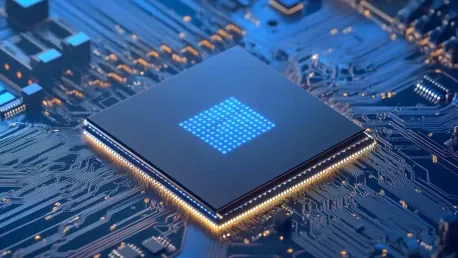Recent developments have highlighted Intel’s ongoing challenges in the AI chip market, particularly focusing on issues surrounding their data-center GPUs. The company’s ambitious plans to release the Falcon Shores AI chip, initially intended to replace the Gaudi 3 accelerator chip, were unexpectedly halted. Instead, Intel has opted to use Falcon Shores internally to refine their AI data center products, showcasing their lack of readiness to compete meaningfully in the cloud-based AI data center market.
Intel’s AI Struggles
Intel’s difficulties in breaking into the rapidly growing AI market have become increasingly evident, culminating in the recent dismissal of CEO Pat Gelsinger. Despite substantial investments and strategic efforts, the company has struggled to make a significant impact. This turbulence within Intel’s leadership underscores the broader challenges the company faces in adapting to new market demands and maintaining its competitive edge.
Postponed Releases and Future Developments
The planned release of the Falcon Shores AI chip has been postponed, pushing potential advancements to a subsequent version referred to as Jaguar Shores. This delay not only reflects Intel’s current struggles but also raises concerns about their ability to innovate and deliver on technology milestones in a timely manner. These setbacks complicate Intel’s roadmap as they attempt to stay relevant in a market landscape dominated by rapid technological progress.
Learning from Gaudi’s Performance
Intel has acknowledged that their Gaudi accelerator chip has not performed up to expectations in the competitive AI market. Nevertheless, they assert that valuable lessons have been learned from its shortcomings, which are guiding developments for future products. These insights are crucial if Intel hopes to refine their technology and address performance gaps to better meet market needs.
Delays in CPU Development
The introduction of the next-generation Clearwater Forest Xeon CPUs has also been delayed to the following year. This postponement further complicates Intel’s efforts to remain competitive across their product lines. Delays in both GPUs and CPUs highlight a broader trend of missed opportunities and slow adaptations within the company.
Investor Reaction
Interestingly, despite these notable setbacks, investors have not reacted strongly to the news. This subdued response suggests that expectations for Intel may have already been on the lower side, with investors taking a more measured approach to the company’s current struggles and future prospects.
Nvidia’s Market Dominance
A significant challenge for Intel comes from Nvidia, which currently commands about 80% of the AI data-center chip market. Nvidia’s dominance presents a formidable barrier for Intel and other competitors like AMD to overcome. The disparity emphasizes the competitive pressure Intel faces as they attempt to establish a foothold in the AI sector.
Software Hurdles
Intel has conceded that their software ecosystem, critical for effectively utilizing their chips, has been lagging behind Nvidia’s robust CUDA software. The software gap is a significant hurdle that Intel must address to enhance their chips’ performance and appeal to developers.
Search for Leadership
Amidst these challenges, Intel continues its search for a permanent CEO, adding another layer of instability to its ongoing struggles. Clear leadership will be vital for spearheading Intel’s efforts to navigate through these turbulent times and position themselves for future success.
Conclusion
Recent developments have underscored Intel’s persistent struggles in the AI chip market, specifically highlighting hurdles with their data-center GPUs. The tech giant had ambitious plans for the Falcon Shores AI chip, which was originally set to replace the Gaudi 3 accelerator chip. However, these plans faced an unexpected setback. Instead of proceeding with the initial release strategy, Intel decided to employ the Falcon Shores chip internally. This move is part of their efforts to refine and improve their AI data center products. The decision underscores their current unpreparedness to make a significant impact in the competitive cloud-based AI data center market. Intel’s shift in strategy indicates an acknowledgment that they need more development and optimization before they can effectively challenge other players. As the AI chip market rapidly evolves, Intel’s internal focus on Falcon Shores suggests they recognize the necessity of honing their technology to meet the demands of an increasingly sophisticated industry landscape.









